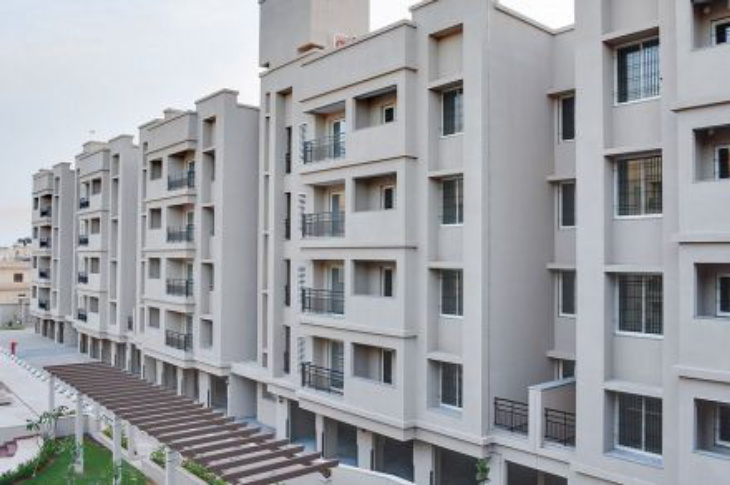DDA Flat Registration Scheme is a yearly "affordable housing" event
This post is one of the most frequently talked about topics of discussion when it comes to affordable housing. Yup, you guessed it right, we are talking about the Delhi Development Authority (DDA) Housing Scheme that is announced by the government on a yearly basis. This topic garners keen interest not only because affordable houses are offered to applicants via lucky draw but the scheme also covers a wide stratum of people, whether they are from the general category or from economically weaker groups or the reserved sections of the society like SC, ST, OBC, etc. As we progress in this post, you will have more insights on several aspects related to the DDA Flats Registration Scheme 2021 – what is the scheme about, its benefits and the general eligibility conditions, etc.
What is the DDA Flat Housing Registration scheme?
Briefly mentioning, under the Pradhan Mantri Awaas Yojna, DDA recently announced the housing registration scheme for the year 2021 wherein the authority has put for sale, more than 1300 flats of various types located at different locations in New Delhi. The sole aim of the scheme is to enable people to buy affordable houses as the houses being offered by DDA are priced cheaper compared to the houses sold by private real estate developers.
The ongoing pandemic has seen massive digitization of government services. DDA Housing Registration Scheme for 2021 has also followed the same path. The authority has completely automated the flats registration process. Some of the following online services are likely to be provided by the DDA to potential house buyers through its Awaas software:
-
Initiating the Online flat registration process by prospective buyers
-
Filling up the online flat registration form
-
Paying flat registration charges and fees
-
Conducting draw of lots under the supervision of authorized government officials
-
Issuing allotment and/or possession letters to the allottees
An important point to note in this scheme is that the allottee(s) may need to visit the office of the DDA for completing the conveyance deed execution process in his or her name.
People Also Read This: Flat Registration - Procedure, Documents Required and Stamp Duty Charges
Type of Flats being offered under the scheme and related registration charges
There are broadly four categories or types of flats that have been put for sale by the DDA under the current scheme. They are:
-
Higher Income Group (HIG) – The registration charges or application amount to be paid for this category of flats are Rs. 2 Lakhs.
-
Middle Income Group (MIG) – The registration charges or application amount to be paid for this category of flats are Rs. 2 Lakhs.
-
Lower Income Group (LIG) – The registration charges or application amount to be paid for this category of flats are Rs. 1 Lakh.
-
Economically Weaker Section (EWS) - The registration charges or application amount to be paid for this category of flats are Rs. 25 Thousand.
Some general conditions to be noted are:
-
The application once submitted cannot be withdrawn.
-
The spouses (husband and wife) can apply either separately or jointly with their spouse(s). However, if they apply separately/individually and both applications are selected in a lucky draw, only one flat will be allotted as per regulations.
-
The allotment of flats will happen via draw of lots, the date of which will be announced by DDA in due course.
-
The date of allotment will also be announced soon by the DDA.
-
The possession of flats will be given after allotment and receipt of the first payment by the DDA.
-
The DDA will initiate the refund of payment for an unsuccessful draw after 30 days from the date of draw of lots.
-
It is advisable to regularly visit the DDA website for information on the ‘lucky draw’.
Those who read this Article also Consulted a Lawyer about DDA Schemes.
What are the eligibility conditions for putting a DDA housing scheme application?
As per DDA, any applicant interested in putting up an application needs to fulfill the following criteria:
-
Only a citizen of India can apply for the scheme.
-
Applicant must be over 18 years of age.
-
Applicant must not be an existing leasehold or freehold owner or joint owner of residential house or plot of size 67 square meters in Delhi, New Delhi, or Delhi cantonment.
-
Applicant must possess an active bank account.
-
Applicant must also have PAN Card.
-
Annual income of applicant applying under EWS category must not exceed Rs. 3 lakhs.
-
Household income of EWS category applicants should not be more than Rs. 10 lakhs.
People Also Read This: What is a Possession Certificate?
What documents are required for submission along with the application?
The applicant needs to submit the self-attested copies of the following documents:
-
Address Proof that may include documents like Driving License, Passport, Voter ID, Electricity Bill, Aadhaar Card, etc.
-
PAN Card
-
Bank Statement or Passbook
-
Income Tax Return filed for the assessment year
-
Reserved Category certificate, as applicable, issued by a competent government authority
Conclusion
The DDA Housing Scheme is a good opportunity for all those who are planning to buy a reasonable house in Delhi. The scheme has been created keeping in mind the budgetary constraints of people who dream to own a home. With several nationalized government and private banks providing housing loans at prevailing interest rates, the scheme definitely has the potential of being economical for the common citizen. We suggest you evaluate all your options including the legalities involved and register before the deadline ends if it fits your bill.
Trending



Ask a Lawyer